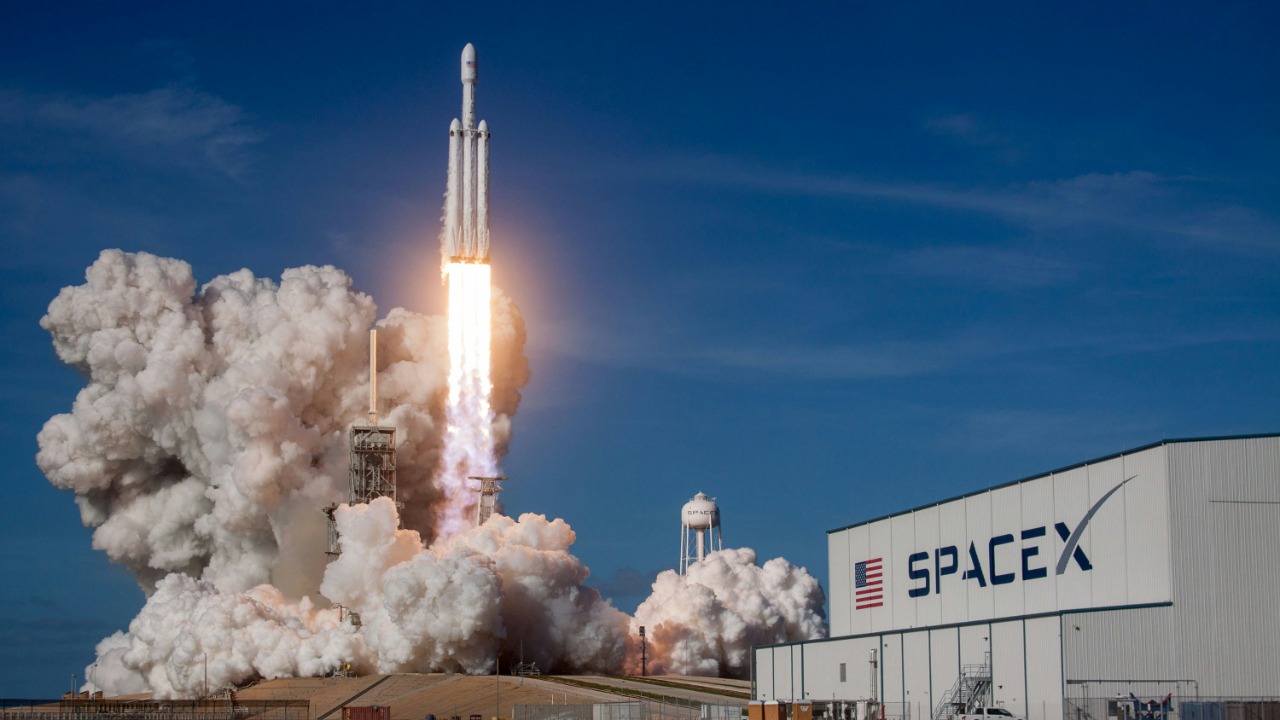
SpaceX has achieved a significant milestone in its space exploration journey, surpassing Blue Origin with its 100th orbital launch from Florida’s Cape Canaveral Space Force Station. The Falcon 9 rocket, carrying 23 Starlink satellites, took off on January 15, 2024, marking a new record in the competitive space industry. This achievement underscores SpaceX’s rapid operational cadence and its dominance over Blue Origin, which had a record of 99 launches from the same region as of December 2023.
The Falcon 9 Mission Details
The Falcon 9 rocket, with its first-stage booster B1071 marking its 10th flight, lifted off from Launch Complex 40 at Cape Canaveral Space Force Station at 6:32 p.m. EST on January 15, 2024. The booster successfully landed on the droneship Of Course I Still Love You in the Atlantic Ocean, approximately 8.5 minutes after launch. This mission reaffirms SpaceX’s commitment to reusability, a key factor in their rapid launch cadence.
The payload of the mission consisted of 23 Starlink v2 Mini satellites, which were deployed into a low-Earth orbit at an altitude of 530 km. The fairings were recovered by the SpaceX recovery vessel Megan, located 650 nautical miles downrange. This successful deployment has expanded the Starlink constellation to over 5,200 satellites in orbit, enhancing global broadband coverage. SpaceX spokesperson Hannah Post stated in a press release, “This mission brings us one step closer to our goal of providing high-speed internet access to remote and underserved areas worldwide.”
SpaceX’s Florida Launch Surge
SpaceX’s rapid launch cadence is evident in its 2023 Florida launch total of 61 missions from Cape Canaveral and Kennedy Space Center, a significant increase from 31 in 2022. This surge is largely attributed to the reusability of the Falcon 9 rocket and the growing demand for Starlink satellites. Space.com’s annual report provides a comprehensive overview of SpaceX’s 2023 launch activities.
SpaceX has also upgraded Launch Complex 39A at Kennedy Space Center for Starship testing. The first integrated flight test occurred on April 20, 2023, despite an explosion 4 minutes into ascent. This incident, however, did not deter SpaceX’s ambitious plans. Updates about the Starship testing can be found on NASA’s official website.
The economic impact of SpaceX’s operations in Florida is significant, supporting 13,000 jobs and contributing $1.5 billion in annual local spending, as reported by the Florida Department of Economic Opportunity. The full report can be found on the department’s official website.
Blue Origin’s Competing Efforts
Blue Origin, SpaceX’s main competitor, has conducted 99 Florida-related launches, primarily via suborbital New Shepard flights from Launch Site One in West Texas. These include partnerships like the 2021 NS-16 mission with William Shatner on October 13, 2021. More details about Blue Origin’s missions can be found on its official website.
However, Blue Origin’s progress in orbital launches has been slow, with its debut New Glenn launch delayed to 2024. This delay has drawn criticism from SpaceX CEO Elon Musk, who stated, “Blue Origin is years behind on orbital launches.” More details about the New Glenn launch can be found on Blue Origin’s official website.
Despite these challenges, Blue Origin founder Jeff Bezos invested $1 billion personally into the company in 2023, aiming to challenge SpaceX in the lunar and orbital markets. Bloomberg’s profile of Jeff Bezos provides more insights into his investment strategy.
Technological Edges in the Launch
The Falcon 9 rocket’s Merlin 1D engines, with nine first-stage units producing 1.7 million pounds of thrust, played a crucial role in the successful 100th Florida launch. More details about the Falcon 9 rocket can be found on SpaceX’s official website.
The autonomous droneship landing of booster B1071, the first to achieve 10 reflights, has significantly reduced costs to under $30 million per launch, according to Gwynne Shotwell, President and COO of SpaceX, at the 2023 International Astronautical Congress. More details about the IAC 2023 can be found on SpaceX’s official website.
The January 15, 2024, mission was executed without any anomalies, demonstrating SpaceX’s commitment to safety. The FAA has approved SpaceX for 148 launches in 2024 from Florida sites. More details about SpaceX’s FAA approval can be found on the FAA’s official website.
Industry and Regulatory Context
The FAA has been closely monitoring SpaceX’s operations. The January 15, 2024, launch was licensed under FA A-2024-0123, following the closure of the Starship mishap investigation on December 20, 2023. More details about the FAA’s oversight can be found on its official website.
In the competitive space industry, SpaceX won NASA’s $2.89 billion Artemis contract for the Starship lunar lander in 2021, despite protests from Blue Origin, which were dismissed by the GAO. More details about the Artemis contract can be found on NASA’s official website.
SpaceX has also received environmental approval for its 2023 Kennedy Space Center expansion permit, allowing 44 annual launches with mitigated wetland impacts. More details about the environmental review can be found on the Fish and Wildlife Service’s official website.
Future Launches and Rivalry Outlook
SpaceX has an ambitious schedule for 2024, targeting 120+ launches from Florida. This includes the Crew-8 mission on March 14, 2024, from Pad 39A with NASA astronauts Matthew Dominick and Michael Barratt. More details about SpaceX’s 2024 schedule can be found on its official website.
Blue Origin, on the other hand, plans for 12 New Glenn missions in 2024 from Cape Canaveral’s SLC-36, with the first flight no earlier than Q1. More details about Blue Origin’s 2024 plans can be found on its official website.
According to a BryceTech report, SpaceX held 80% of global orbital launches in 2023, putting pressure on Blue Origin to accelerate its development. The full report can be found on BryceTech’s official website.
More from MorningOverview